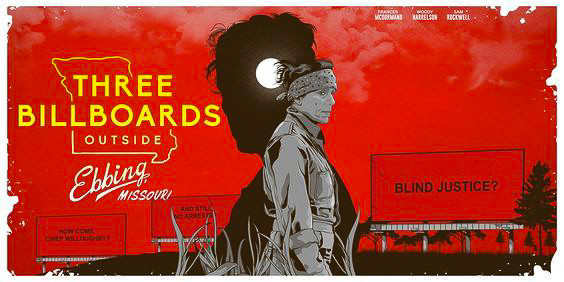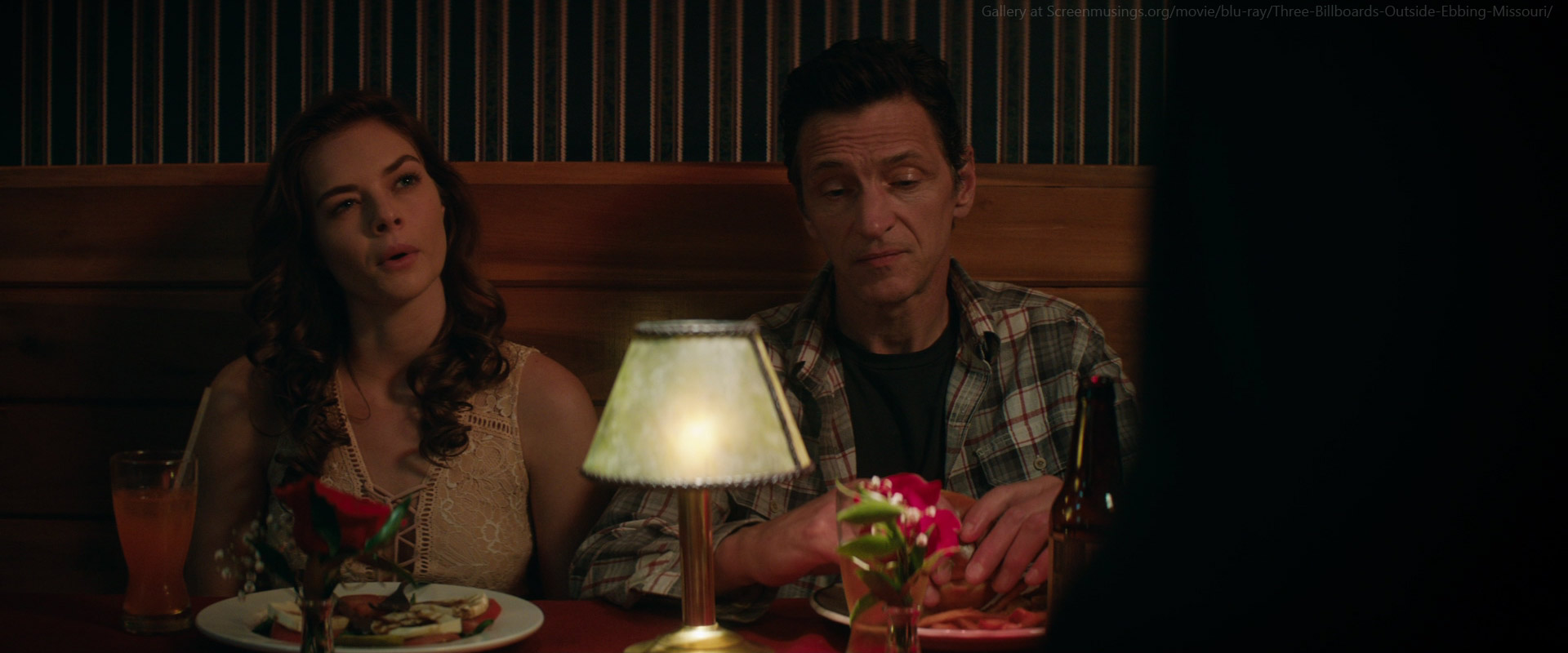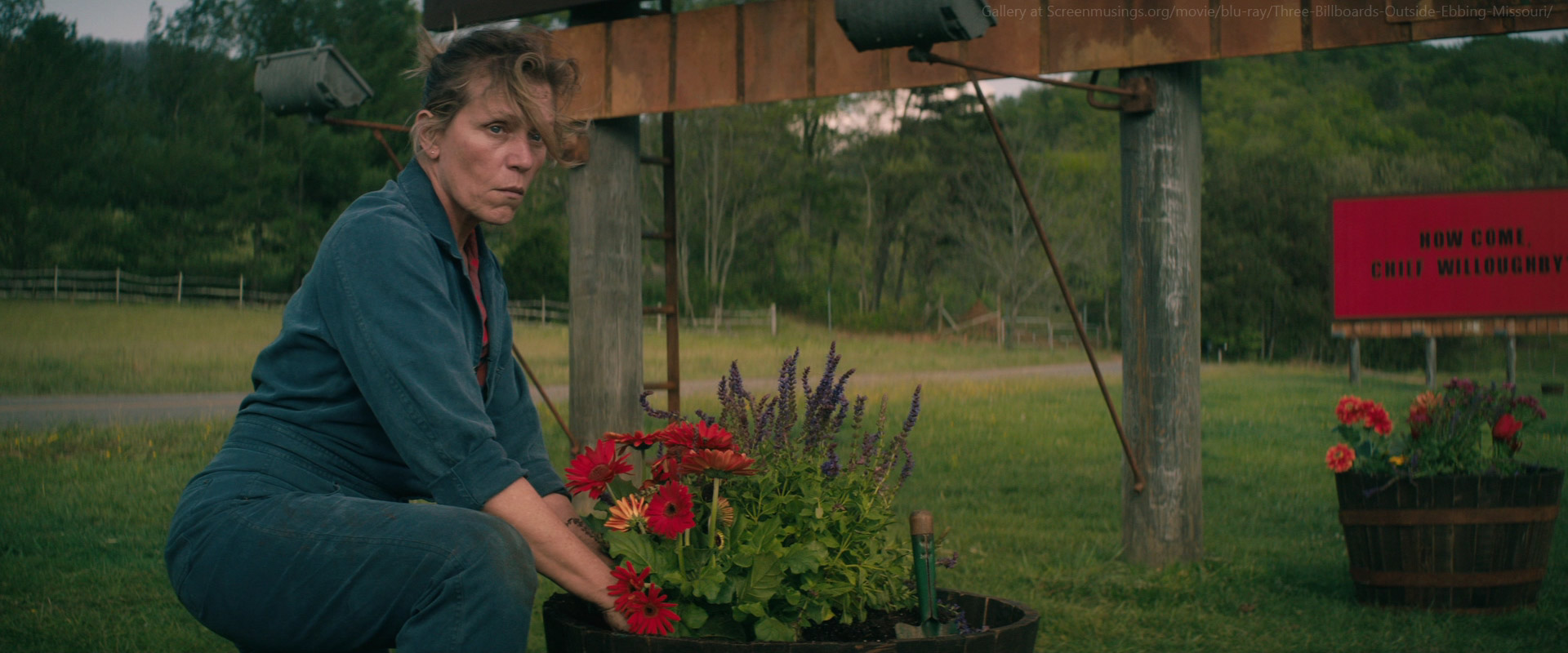Three Billboards Outside Ebbing, Missouri (2017)

Three Billboards Outside Ebbing, Missouri (2017), directed by Martin McDonagh, is a searing and darkly comedic drama that explores themes of grief, justice, and redemption. Anchored by powerhouse performances from Frances McDormand, Woody Harrelson, and Sam Rockwell, the film is both a blistering critique of small-town America and a deeply human story about anger, forgiveness, and the complexities of morality.
The story revolves around Mildred Hayes (Frances McDormand), a grieving mother whose teenage daughter, Angela, was raped and murdered. Frustrated by the lack of progress in the investigation, Mildred rents three billboards on the outskirts of town. The billboards read: “RAPED WHILE DYING,” “AND STILL NO ARRESTS?” “HOW COME, CHIEF WILLOUGHBY?” This bold and provocative act shocks the community and sets off a chain of events that force the town’s residents to confront their own prejudices, failings, and unresolved pain.
Chief Bill Willoughby (Woody Harrelson), the target of Mildred’s anger, is a respected figure in Ebbing. Though he sympathizes with Mildred’s loss, he feels unfairly singled out, especially as he is battling terminal cancer. Willoughby’s humanity and his deeply personal struggles add layers to the film, challenging viewers to question their judgments about him and his handling of the case.
Jason Dixon (Sam Rockwell), a racist and volatile police officer with a reputation for brutality, initially emerges as a villain in the story. However, as the narrative unfolds, Dixon undergoes a complex arc of self-reflection and transformation, forcing audiences to grapple with the possibility of redemption for even the most flawed characters.
Mildred’s campaign for justice serves as the film’s emotional and narrative core. Frances McDormand delivers a fierce and uncompromising performance, portraying Mildred as a woman consumed by grief and rage but also capable of surprising vulnerability and humor. Her biting wit and unrelenting determination make her a compelling and unforgettable protagonist.
The film masterfully blends dark comedy with moments of raw emotion. McDonagh’s sharp, profanity-laden dialogue injects levity into the bleak subject matter, while the characters’ interactions reveal deep emotional truths. The humor never undercuts the gravity of the story but instead highlights the absurdity of life’s contradictions and the messy nature of human relationships.
Visually, Three Billboards captures the small-town atmosphere with a mix of stark, wide-open landscapes and intimate close-ups. The cinematography by Ben Davis emphasizes the isolation and stagnation of Ebbing, mirroring the characters’ internal struggles.
The film’s score, composed by Carter Burwell, is haunting and understated, blending melancholy strings with moments of quiet tension. The music enhances the film’s emotional resonance, underscoring the weight of Mildred’s grief and the complexity of the characters’ journeys.
At its heart, Three Billboards Outside Ebbing, Missouri is a meditation on the destructive power of anger and the possibility of forgiveness. It refuses to provide easy answers or resolutions, instead embracing the ambiguity and contradictions of its characters and their choices. The film challenges viewers to empathize with deeply flawed individuals and to confront their own assumptions about justice, morality, and redemption.
Winning multiple awards, including Oscars for Frances McDormand (Best Actress) and Sam Rockwell (Best Supporting Actor), Three Billboards has become a modern classic. It’s a film that lingers in the mind, provoking reflection on the nature of grief, the limits of justice, and the capacity for change. Bold, thought-provoking, and deeply human, it’s a cinematic experience that resonates long after the credits roll.











